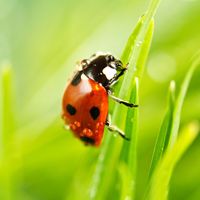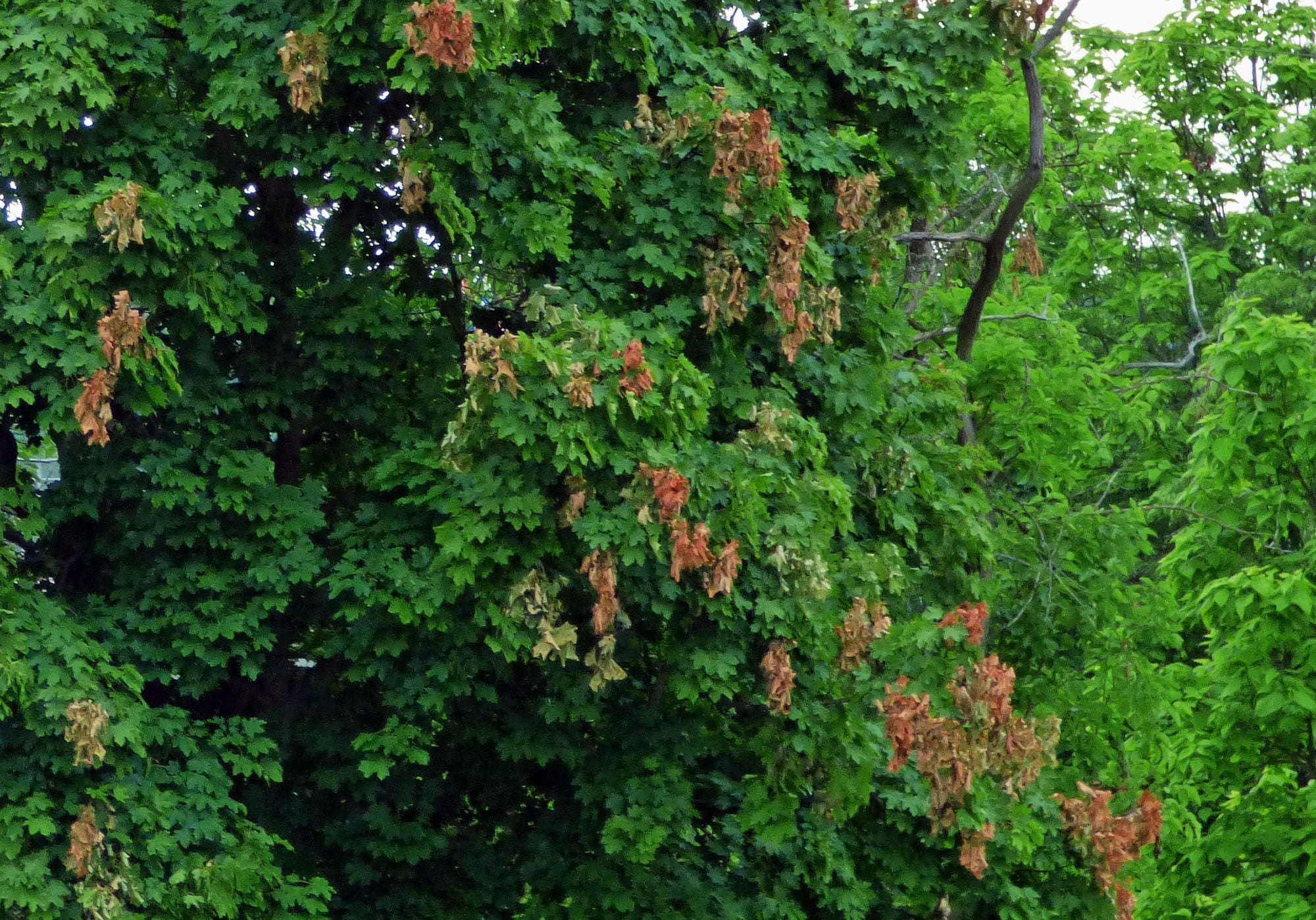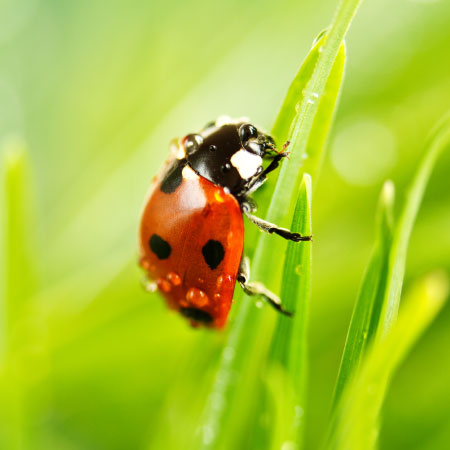Reasons Why New Growth Is Dying


New growth on your plants is a promise of blooms, big beautiful leaves, or, at the very least, an extended lifespan; but when that new growth is wilting or dying, most gardeners panic, not knowing what to do. Although dying growth on plants of any age is a serious and difficult problem to manage, there are a few things you can try to save your plants before they go belly up.
Why New Growth is Dying
Well, that's really the question, isn't it? The reasons for tender growth dying are numerous, but they can generally be divided into these categories: bugs, vascular disease, and root damage. Pests - When you're trying to determine how to fix dying growth, bugs are by far the easiest. Tip and twig borers, like those common on many evergreen trees and blueberries, prefer to burrow into the soft tissues at the end of shrubs and trees. Look for tiny holes at the end, or snap some dying tissue off and inspect it for galleries or tunnels. You may never see the tiny beetles responsible, but their telling tunnels and entry holes are evidence enough. Disease - Vascular diseases are caused by fungal and bacterial pathogens that invade the transport tissues of your plants. As these pathogens multiply, they clog the vascular tissues, making it difficult or impossible for some parts of your plant to get nutrients, water, and send manufactured food back to the crown. All this blockage will eventually cause the death of tissues, and tender new growth is usually the most susceptible since it's the furthest from the roots. Root damage - Root damage is another common cause of dead new growth. Fertilizers are great and so is watering your plant, but there's such a thing as too much. When this good stuff is in excess, it often leads to root damage. The smallest roots usually die first, but sometimes whole sections of the root system can be killed, especially in the case of excess slow-release fertilizer or fertilizer salt build-up. Fewer roots mean fewer nutrients and less water that can be transported, so these valuable materials often don't make it all the way to the tips of the plant once root damage is severe.
How to Fix Dying Growth
Dying growth can be difficult to cure, no matter the cause. If you've got boring beetles, they'll probably be long gone before your plant starts to show signs of damage and vascular diseases are almost always death sentences, so intervention, in either case, is usually pointless. Damaged roots, on the other hand, can sometimes be regrown with careful management. If possible, dig your plant and check the roots. You'll need to prune out any that are black, brown, or feel soft. Increase the drainage for outdoor plants by adding enough compost to fill the rootball's hole one quarter to one half of the way. Potted plants will need to be flushed, do this by removing their saucers and watering the plant from the top until the water runs out the bottom. Repeat this four times to remove excess fertilizer salts from the soil. If the soil stays soggy for more than a few minutes, you should consider repotting the plant. Going forward, pay close attention to how often you fertilize and water your plant. Remember, too much is just as bad for them as too little. Water only when the plant's soil surface feels dry, and fertilize only when the plant appears to need it, such as when the leaves start to lighten in color. Never leave your plant in standing water, as this will only undo the work you've done to help save it.
Sign up for the Gardening Know How newsletter today and receive a free copy of our e-book "How to Grow Delicious Tomatoes".

Kristi Waterworth was a regular contributor to Gardening Know How for many years, answering countless queries on plant pests and diseases.